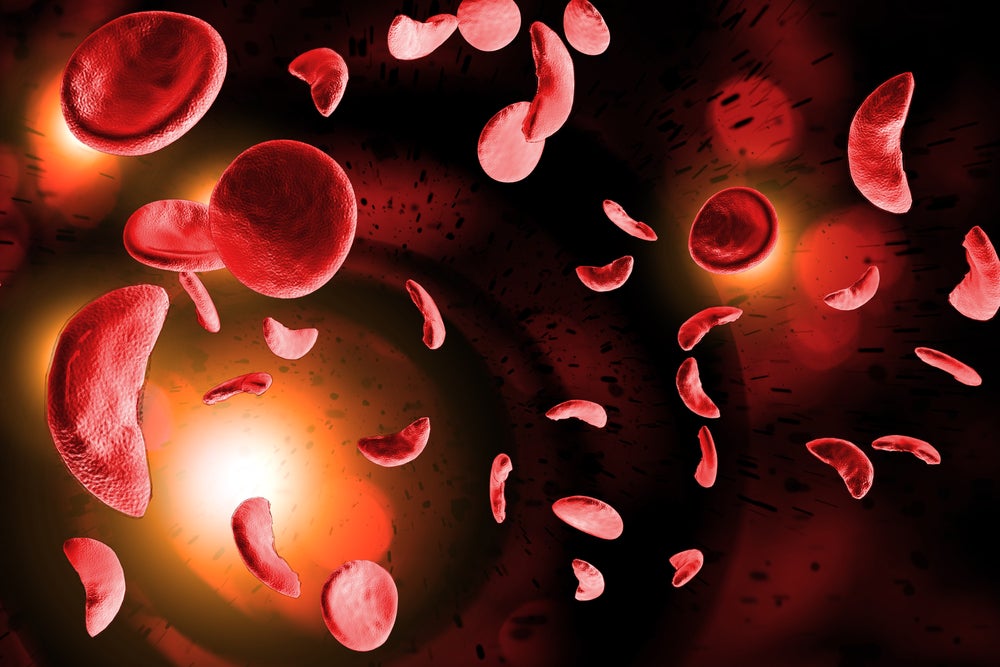Editas grabs orphan drug status for sickle cell disease CRISPR therapy
28 Apr 2023
Gene TherapyLicense out/inOrphan DrugCell TherapyClinical Study

Preview
Source: Pharmaceutical Technology
Adam Zamecnik
@a_zamecnik

Preview
Source: Pharmaceutical Technology
Image Credit: Shutterstock / Ezume Images

Preview
Source: Pharmaceutical Technology
The US Food and Drug Administration (FDA) has granted an Orphan Drug Designation to Editas Medicine’s gene therapy EDIT-301 in sickle cell disease, based on an April 27 announcement.
The US agency previously granted the Orphan Drug Designation to EDIT-301 for its study in beta thalassemia, in May 2022. The company is studying EDT-301 in sickle cell disease in a Phase I/II RUBY study (NCT04853576), and is on track to provide a clinical update by mid-2023.
Editas had previously announced positive safety and efficacy data with two patients enrolled in the RUBY study, stating that the therapy was well-tolerated and that both patients were successfully engrafted and free of vaso-occlusive events during the follow-up. The first patient had a total haemoglobin level of 16.4 g/dL and 45.4% fetal haemoglobin after five months, per a December 2022 update. Editas has plans to dose 20 patients on this study by the end of this year.
EDIT-301 is made of patient-derived CD34+ haematopoietic stem and progenitor cells, which are edited using CRISPR at the gamma globin gene (HBG1 and HBG2) promoter sites using a proprietary engineered AsCas12a nuclease, per the company’s website. This increases the expression of fetal haemoglobin. Editas’ CRISPR therapies represent a different approach to the gene editing technology than the one used by CRISPR Therapeutics, which relies on the CRISPR/Cas9 platform.
Earlier in the year, the company had announced a move towards developing treatments for hemoglobinopathies like sickle cell disease and beta thalassemia and a focus on in vivo discovery. In a January 9 press release, Editas stated it will be laying off roughly 20% of its workforce, alongside the discontinuation of its investments in its therapies for inherited retinal diseases.
Specifically, this meant that the company stopped investments into EDIT-101 and its use in Leber Congenital Amaurosis and EDIT-103 for rhodopsin-associated autosomal retinitis pigmentosa. Editas also discontinued investments in its preclinical natural killer (NK) cell program, which included candidates like EDIT-202 for use in solid tumours. On January 19, Editas announced that it entered into a definitive agreement with Shoreline Biosciences for the licensing of its natural killer cell program. Shoreline acquired EDIT-202 as part of this agreement.
Cell & Gene Therapy coverage on Pharmaceutical Technology is supported by Cytiva.
Editorial content is independently produced and follows the highest standards of journalistic integrity. Topic sponsors are not involved in the creation of editorial content.
Free Whitepaper
Optimise your cell therapy process: a guide to cell thawing
Typically carried out at the point of care, errors in cell therapy thawing could compromise treatment efficacy, leading to significant patient impact as well as high costs and a compromised reputation for the product’s developer.
This guide addresses how cell thawing has historically developed into the new techniques used today, along with the physical and biological implications of key metrics and components such as warming rate and ice structure. Also included are reviews of key studies from scientific literature and a consideration of the interactions between cooling and warming rates, as applicable to cell and gene therapies.
By Cytiva Thematic

Preview
Source: Pharmaceutical Technology
-->
By downloading this case study, you acknowledge that GlobalData may share your information with Cytiva Thematic and that your personal data will be used as described in their Privacy Policy
For more details,please visit the original website
The content of the article does not represent any opinions of Synapse and its affiliated companies. If there is any copyright infringement or error, please contact us, and we will deal with it within 24 hours.
Indications
Hot reports
Get started for free today!
Accelerate Strategic R&D decision making with Synapse, PatSnap’s AI-powered Connected Innovation Intelligence Platform Built for Life Sciences Professionals.
Start your data trial now!
Synapse data is also accessible to external entities via APIs or data packages. Leverages most recent intelligence information, enabling fullest potential.





